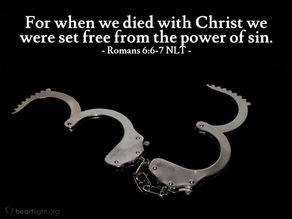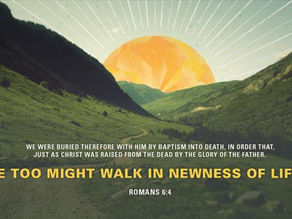Acts 20:7-12 - Wake Up!
- Chad Werkhoven
- Nov 21, 2024
- 4 min read
God's grace comes even to those who doze off.
Acts 20:7-12 (NIV)
7 On the first day of the week we came together to break bread. Paul spoke to the people and, because he intended to leave the next day, kept on talking until midnight. 8 There were many lamps in the upstairs room where we were meeting. 9 Seated in a window was a young man named Eutychus, who was sinking into a deep sleep as Paul talked on and on. When he was sound asleep, he fell to the ground from the third story and was picked up dead. 10 Paul went down, threw himself on the young man and put his arms around him. “Don’t be alarmed,” he said. “He’s alive!” 11 Then he went upstairs again and broke bread and ate. After talking until daylight, he left. 12 The people took the young man home alive and were greatly comforted.
Listen to passage & devotional:
Belgic Confession of Faith, Article 35: The Sacrament of the Lord’s Supper (Part 2)
This banquet is a spiritual table
at which Christ communicates himself to us
with all his benefits.
At that table he makes us enjoy himself
as much as the merits of his suffering and death,
as he nourishes, strengthens, and comforts
our poor, desolate souls
by the eating of his flesh,
and relieves and renews them
by the drinking of his blood.
Moreover,
though the sacraments and thing signified are joined together,
not all receive both of them.
The wicked person certainly takes the sacrament,
to his condemnation,
but does not receive the truth of the sacrament,
just as Judas and Simon the Sorcerer both indeed
received the sacrament,
but not Christ,
who was signified by it.
He is communicated only to believers.
Finally,
with humility and reverence
we receive the holy sacrament
in the gathering of God’s people,
as we engage together,
with thanksgiving,
in a holy remembrance
of the death of Christ our Savior,
and as we thus confess
our faith and Christian religion.
Therefore no one should come to this table
without examining himself carefully,
lest “by eating this bread
and drinking this cup
he eat and drink to his own judgment.”
In short,
by the use of this holy sacrament
we are moved to a fervent love
of God and our neighbors.
Therefore we reject
as desecrations of the sacraments
all the muddled ideas and damnable inventions
that men have added and mixed in with them.
And we say that we should be content with the procedure
that Christ and the apostles have taught us
and speak of these things
as they have spoken of them.
Summary
Poor Eutychus. On one hand, what an honor to have your name memorialized for all ages on the pages of scripture. On the other hand, this passage wouldn't be included in Luke's account of the early church if he hadn't dozed off. Once again, we read the story through the lens of Luke's dry, subtle sense of humor: there were many lamps in the upstairs room, and Paul talked on and on.
As midnight came and went, and Paul kept on preaching, poor Eutychus, like the disciples in the garden the night Jesus was arrested, submitted himself to slumber. But instead of being roused by Jesus, Eutychus took a three story stumble to his death. But, by God's grace, Paul, just like the prophets Elijah and Elisha of old, laid down on the boy and brought him back to life.
The long winded preacher in me might like to focus on the fact that after a quick late night snack, the congregation once again eagerly listened as Paul resumed preaching until daylight. But as awesome as their hunger to hear God's Word was, it's not what grabs our attention today.
Rather, it's the opening line: On the first day of the week we came together to break bread. Two things stand out: From the earliest of times, Christians have gathered together on the first day of the week. But secondly, in addition to spending the bulk of their time - the entire night, in this case - listening to God's Word preached, they also came together to celebrate the sacrament the Lord ordained for us.
Dig Deeper
Communion in this early congregation looked far different than it does for us. They didn't use cubed bites of white bread followed by tiny shot glasses of wine, as is common in our cultures. But even now, the communion experience looks different across the broad church spectrum. In some churches, the people remain seated while the elders serve, and in others, the congregation comes forward. Many like ours get their wine from a tiny cup, while others share a common cup.
Our confession gives us four aspects that a faithful communion experience will include, no matter how different the particulars may be:
We engage together - We're not just communing with Christ, but with His body as well, which is the church;
With thanksgiving - Thanksgiving for what Christ has done for us is a key aspect of communion, which is why it's often referred to as the eucharist (the Greek word for thanksgiving);
In a holy remembrance of the death of Christ our Savior - Adhering to Jesus' command to do this in remembrance of me is the most fundamental reason we gather together to participate;
We confess our faith and Christian religion - Participating in this sacred sacrament is the most reverent way you can confess your allegiance to the faith once delivered.
ACKNOWLEDGE WHO GOD IS: Our Father, whose Word and sacrament nurses us back to life even after we doze off;
ALIGN YOUR LIFE WITH GOD'S WILL: Pray for the humility and reverence required to properly respond to God's gracious invitation to commune with Him and His Church;
ASK GOD FOR WHAT YOU NEED:
Read the New Testament in a year! Today: 2 Thessalonians 3




















Comments